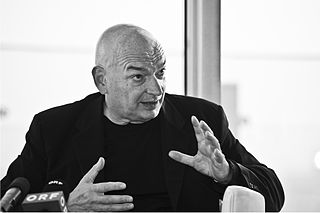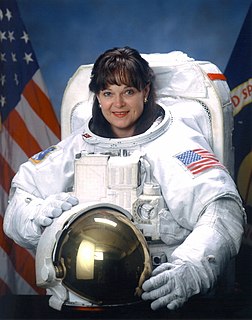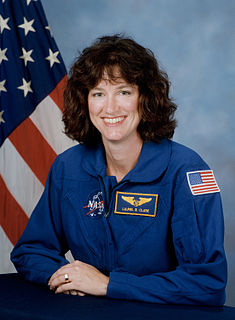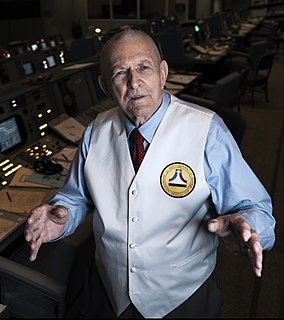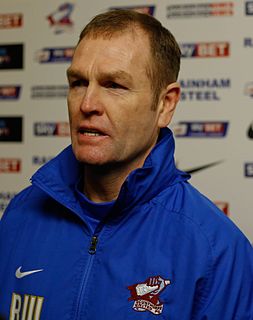A Quote by Shannon Walker
I can talk about casting a ballot from space since I did it last time I was on the space station. They basically send you an electronic file, it's a PDF, and you mark your choices.
Related Quotes
In 2009 I went up on the space shuttle. I was in space for 16 days and docked at the space station for 11 days. The entire crew did five space walks, of which I was involved with three of them. When you're doing a space walk, you always have a buddy with you. It's a very dangerous environment when you're doing a space walk.
One of the things that makes it so challenging is that we're constructing the Station hundreds of miles above the surface of the Earth and we're doing it one piece at a time For the International Space Station we do not have the privilege of assuming the Space Station is on the ground before we take it up one piece at a time. So we have to be very clever about the testing that we do and the training that we do to make sure that each mission is successful, and that each piece and each mission goes just as it's planned.
In America, we have no means of getting to our own Space Station. We have to pay the Russians to put our people up there to send them into space - rendezvous with the Station and bring them back at the end of their stay, and that to me is just wrong. We're supposed to be the world's greatest space-faring nation, and to cancel our own means of getting there I thought was a mistake, even though it would save some money.
The space station mission was kind of the culmination of all of my experience of being a NASA Astronaut, so it had brought all of my previous experience into play. I had to learn the Russian language to a fluent level so that I could function as the co-pilot of the Soyuz Spacecraft that we flew up and back from the space station. And then the challenge of being the Commander of the whole expedition, a six and a-half month flight aboard the international space station. I felt the burden of the whole mission on my shoulders, which was fine, and fortunately everything did go well.
When Russians were having troubles, the Space Shuttle supported the Space Station Mir bringing up much needed supplies and replacements, critical spares, really. That they were able to keep their space station going for much longer than they would have without us. So, I think that shows the value of international cooperation.
[Electronic newspapers will bring] plenty of ulcers for journalists because they'll have new deadlines every 60 seconds. It'll be a race to file. On the other hand, because space is infinite there will hopefully be more room for thoughtful pieces, longer pieces, the kind that a journalist wishes he or she could do but doesn't have the space.



